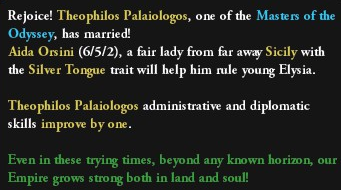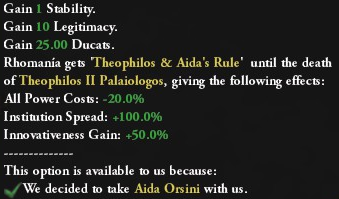Congrats on expanding Elysian dominion!
Also, I find the idea of Janissaries in Elysia interesting. How useful will they be?
Plethon converted a cardinal? Wow. That's a shock. Who will the court side with?
Also, I find the idea of Janissaries in Elysia interesting. How useful will they be?
Plethon converted a cardinal? Wow. That's a shock. Who will the court side with?
- 1






